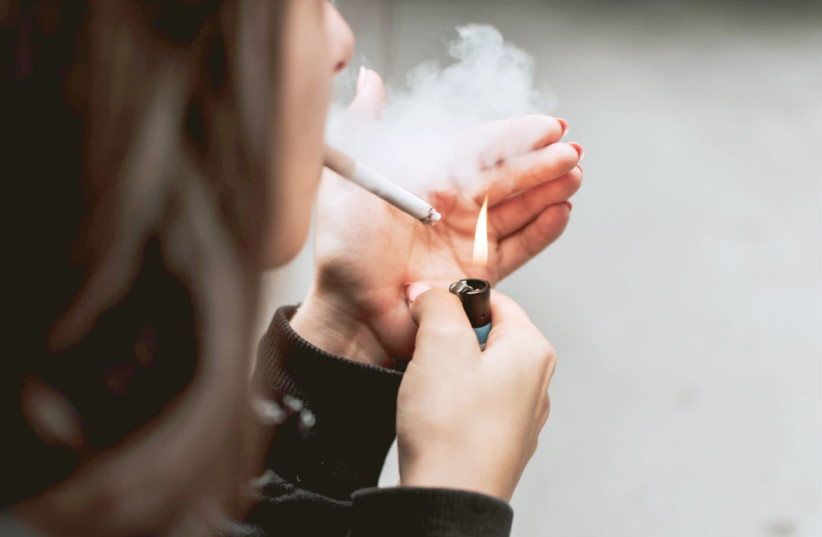Bad breath, medically known as halitosis, affects about 25% of people worldwide and is the third most common reason for dental visits after tooth decay and gum disease. This can cause embarrassment, anxiety and so many other things. Here's what we know:
<br> <br>Causes
1. Dental hygiene:
If oral hygiene is bad, food debris accumulates on teeth along with bacterial plaque which causes the development of gingivitis. The result is an unpleasant mouth odor caused by bacterial by-products. Brushing twice a day while using something to clean between the teeth, such as dental floss, removes the bacterial layer (plaque) and prevents some causes of the odor.
2. Tobacco:

Tobacco products make a mouth stink. They also increase the chances of gum disease and create dry mouth which can also cause bad breath.
3. Food:
Particles trapped in the teeth can cause odors. Some foods or beverages such as onions, garlic, spicy foods, alcohol and caffeine can also cause bad breath.
4. Dry mouth:
Saliva cleanses the mouth naturally. If the mouth is dry due to certain medications or diseases that impair the flow of saliva from the salivary glands, the quality of flushing is impaired and the accumulated residues lead to bad breath.
5. Diets:
A low-carb diet can also cause bad breath. This is due to the breakdown of fats that produce ketones, which have a strong aroma.
6. Medications:
Some medications may reduce the flow of saliva and increase odors. Other drugs can produce odors as they break down and release chemicals in the breath.
7. Mouth, nose and throat conditions:
Sometimes, bacteria accumulate on the tonsils and create unpleasant mouth odors. Also, infections or inflammation in the nose, throat or sinuses causes bad breath.
8. Gastrointestinal problems:
Odors sometimes come from the digestive system and problems such as reflux.
So what's the diagnosis?
A dentist can diagnose halitosis at the first whiff of a patient’s breath. A dentist will thoroughly examine the teeth, gums and mouth, looking for rotten teeth or other factors which cause the smell.
<br> <br>Techniques to find causes of bad breath:
- Halimeter: Detects low levels of volatile sulfur compounds
- Gas chromatography: This test measures three volatile sulfur compounds: hydrogen sulfide, methyl mercaptan and dimethyl sulfate.
- BANA test: Measures levels of a specific enzyme produced by bacteria that cause halitosis.
- Beta-galactosidase enzyme test: Enzyme levels correlated with mouth odor.
<br>Treatment:
Brushing:
Good oral hygiene is the key to solving stinky breath. Brush your teeth at least twice a day for two minutes. Use something to clean between the teeth at least once a day (floss, toothpicks, brushes which go between teeth). Replace our toothbrush once every 3 months or earlier if it wears out.
Tongue brushing:
Bacteria, food and dead cells accumulate on the tongue. Clean your tongue daily with a special tongue cleaner.
Denture cleaning:
Clean dentures after each meal to prevent the accumulation of bacteria on them.
Treatment of dry mouth:
Drink plenty of water. Avoid smoking that intensifies dry mouth. You can chew sugar-free gum or suck on sugar-free candies that can help secrete saliva. In cases of extreme dry mouth, consult a doctor who may prescribe drugs that stimulate saliva production.
Proper nutrition:
Avoid onions, garlic and spicy foods. Also, reduce coffee and alcohol consumption.
Dr. Liat Chaoshu DMD MSc is an expert in periodontics (gum disease) in the Clalit Smile network and is one of the senior faculty in the Department of Periodontics, Tel Aviv University.
